This fall, as Alexander McQueen's creative director Sarah Burton unveiled a spring 2020 collection that features detailed embroidery and crocheted pieces from small suppliers, gay Angolan designer Coreon Du reveals a 2020 line that also includes collaborations with a Portugese embroiderer who added details by hand.
All photos courtesy WeDu
Du, a gay Black man from Angola, explains that the embroidery in the WeDu line also reflects the traditional craftsmanship of his home country, a nation that is a former Portuguese colony. Du points to "coastal African styles, like on the West coast where you do have details and embroidery."
As some of the bigger fashion houses are just beginning to think about reducing the industry's waste, Du joins designers like Gabriela Hearst (who The Washington Post recently noted had shifted to biodegradable packaging and incorporating fabric remnants), unveiling hand-knit cardigans, vests, and tops made of fabric remnants, "Because I didn't want to waste a lot of my fabric when they had stuff left over."
The hand-knit cardigan above, and hand-knit top below are both made from fabric remnants.
While award-winning designers Mary-Kate and Ashley Olsen released pieces dominated by simple lines, Du is meditating on "African minimalism," and creating pieces that "complement each other and that the people...would feel comfortable mixing and matching [with other pieces]...or with just their everyday wardrobe regardless of what their personal style is."
Du has also led the way in creating unisex designs and in hiring trans and nonbinary people to model them. Below are a previous season's unisex Confidence Pants that drape like a skirt but fit like pants.
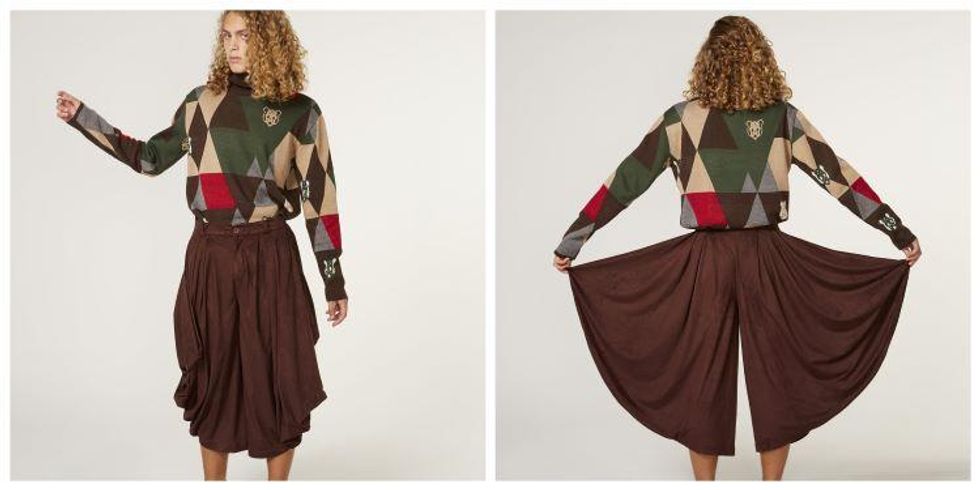
Du says WeDu reflects his background and experiences. Born Jose Eduardo Paulino dos Santos to his mother Maria Luisa Perdigao Abrantes and father Jose Eduardo dos Santos (the long-serving president of Angola who held office from 1979 to 2017), Du was raised in Angola until he was 8 -- around the time his parents divorced. He then spent several years living in Lisbon, Portugal with his maternal grandparents before moving with his mother to Virginia and attending school in the U.S. Du returned to Angola in 2006.
The muliti-talented creator has hit songs in Spanish and Portugese (including "Bailando Kizomba"), award-winning documentaries and television series, powerful art installations, a thriving modeling agency, and a entertainment production company.
Above, jackets by WeDu
WeDu grew out of interest in the designs he created and wore in music videos. People would ask, "Where can we get this outfit?" he recalls. "And since it was both men and women asking about it--. There were certain things that I was wearing and that would be considered very masculine, but I had many women ask, 'How can I also get this?' So that's why I decided from the get go that I would make things that would be unisex. Because again, since my creative work was appreciated by everyone, I wanted it to be inclusive."
Du adds, "I also tried to make it size inclusive, which for personal reasons, because I'm a man of a certain size, and it's tough to find good fashion. But it's still, I think the biggest challenge that I've encountered actually, when trying to make size inclusive clothing is actually not just, I would say fashion professionals, fashion manufacturers play a big part into it, because some of them actually refuse to make bigger sizes."
"I still get that push back," Du says, about resistance to both sizing and unisex fashion. "If you look at fashion trade shows, luckily I think because all of them are ran by creatives, they try to be very open. But then when we look at the industrial side of fashion, it's a little bit tougher because when I'm trying to manufacture something and I go to a certain factory, sometimes they'll be like, 'Oh, is this men's or women's?' And they have a specific size grid that sometimes will not even be realistic. And I learned this because when I started I was making like joggers and T-shirts and stuff, but I was making it for an African body. Even someone who is slim in our country would have thicker legs, a little bit more booty, their shoulders would be broader. Women might be a little bit curvier just genetically. But in other parts of Africa, for example, if we went further up north on the coast, people will be very long and lean and tall."
Above We Du by Coreon Du Body Shameless hoody and sweats
"A lot of manufacturers don't [seem to] realize that," Du continues. "They think we're all this one size fits all...and they're like, 'No, we can't make things like that because we're only used to making these molds and these shapes.' And if it does not fit in that category, it will not happen."
He's hopeful that the industry will continue to become more inclusive. "I would say bigger brands, and independent brands like myself, we're trying to be inclusive and make a change. There's a lot of things that we kind of have to fight and go against the current, and we have to find solutions for these problems."
One of Du's solutions to the issue of sizing is to offer unisex pieces that users can control sizing with by various cinching methods. So one person might wear a shirt loose, while another might cinch shorts tightly around the legs.
Du hopes that the industry will continue to look to the African continent for inspiration, and solutions to the problems it faces. In part to draw attention to Angolan's sense of fashion he made the documentary Bangologia, about banga. "The reason why I wanted to make a documentary about banga, or the essence of style, but specifically African style, was because...over the past 10 years, I've been seeing that there's a growing interest in African aesthetics."
Du says he found Angolan style seems to be a mix of just looking good (sometimes at an enormous cost, much like the Congo's sapeur, who may spend the same on designer suit that they would on a plot of land) and choosing clothing that has a specific purpose or tells a specific story (such as who one's ancestors are, or if you follow a particular spiritual practice). "So it's interesting to see how a lot of things that were practical met all of the things that were just for aesthetic pleasure, or the pleasure of looking nice. So I think that that combination of looking at, I'd say the more ancestral part of our culture, and then how it's being transformed into, I would say a part of global fashion by a lot of African creatives, and African professionals...is why I made Bangologia." (See the film's trailer below.)
The documentary took Du across Angola, as he met with numerous tribes and ethnic groups to talk about what clothing and fashion look like (and the messages style often conveys) in their microcosms. For example, he recalls, "I got to interact with some religious symbols and masks that usually I would not have the opportunity to. And a lot of the national costuming of those regions are very inspired by their religions, or their rights of passage rituals. And I got to experience things that have sort of this feeling. But obviously I wanted to transport it to, like, a street wear thing that anyone could kind of wear, but have that reminiscence of experiencing something African."
Shop WeDu online or through the end of December at the L.A. pop-up store 346 N. La Cienega Blvd, West Hollywood.
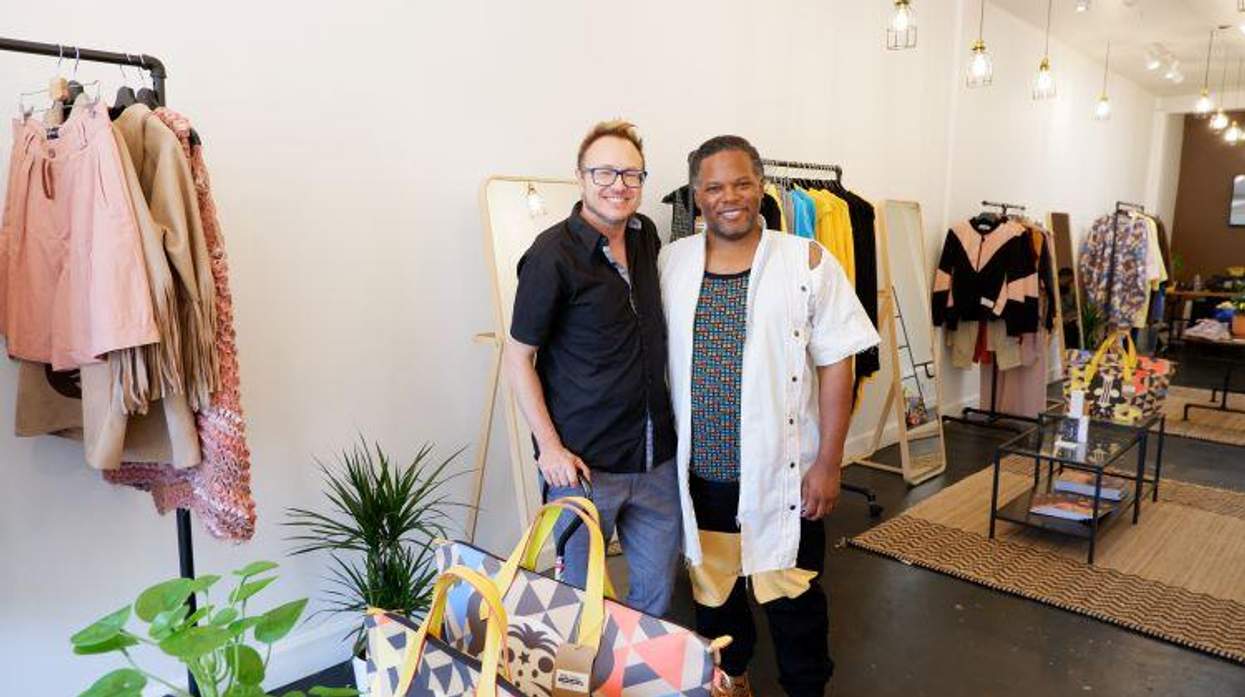
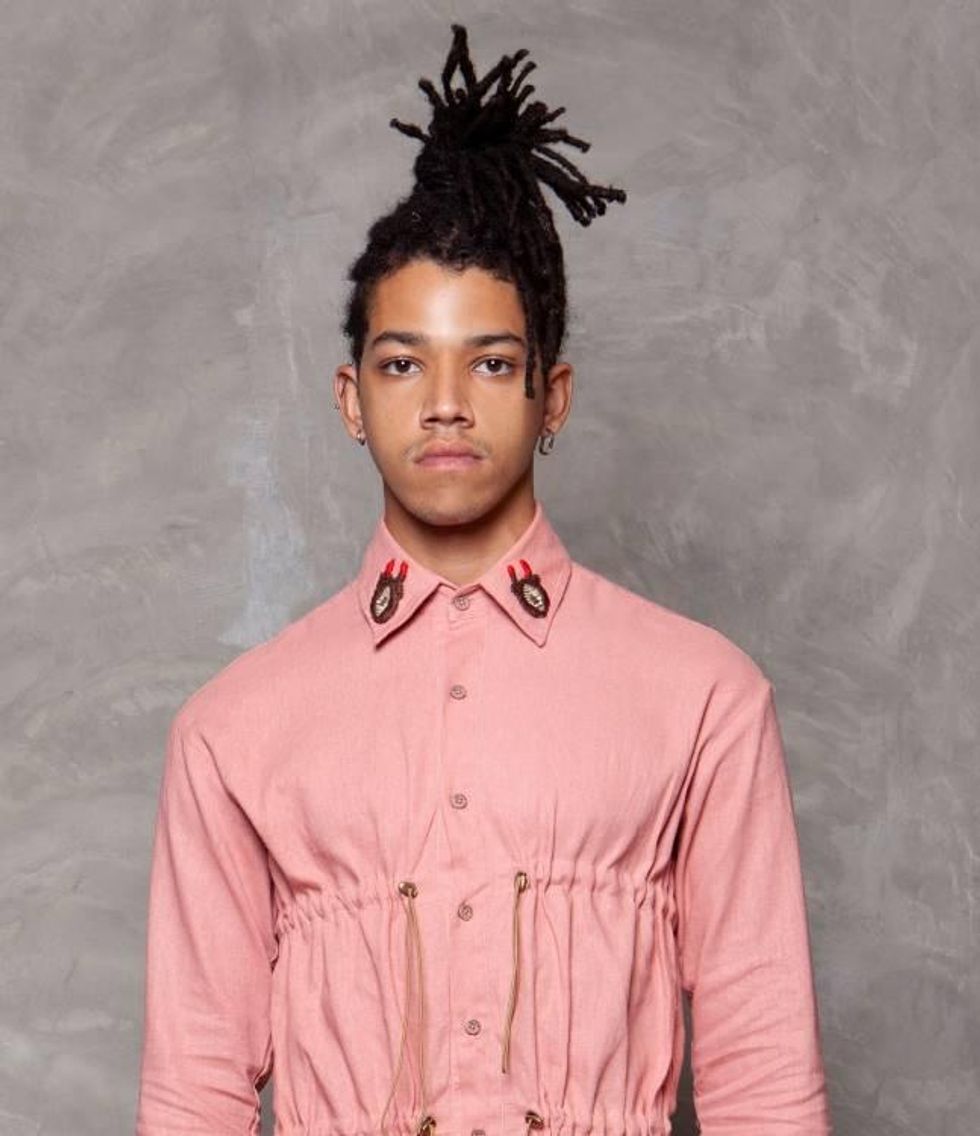
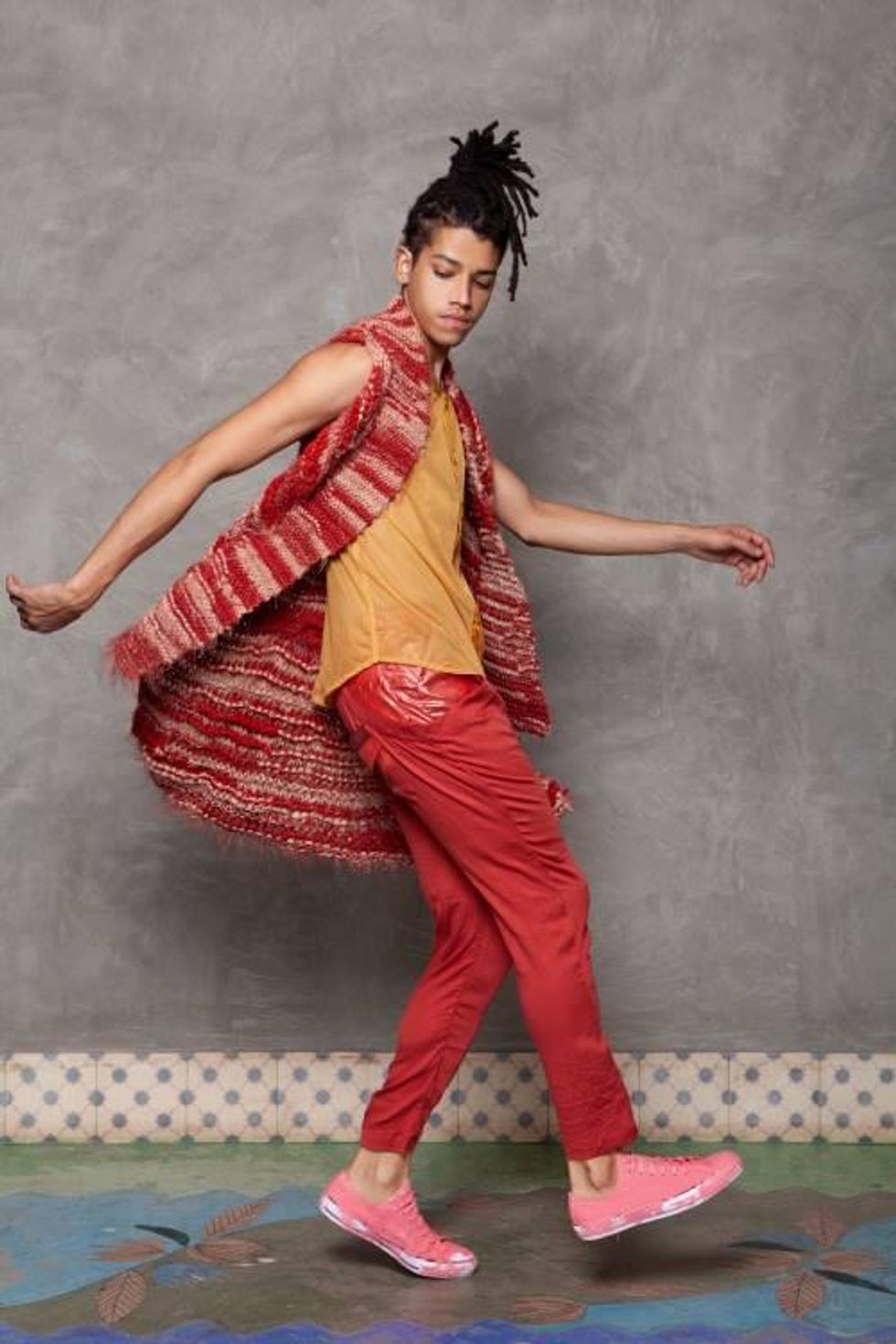
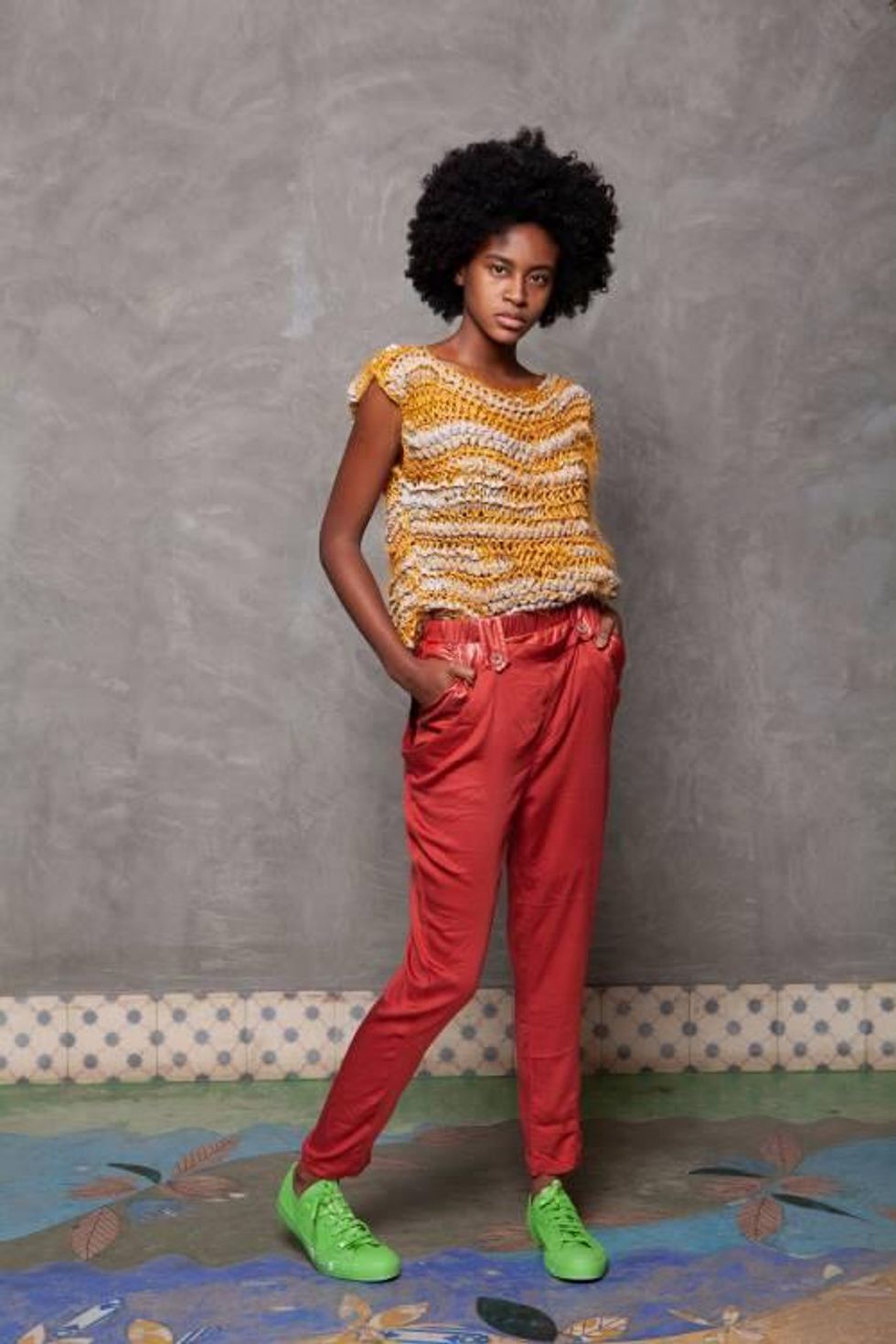
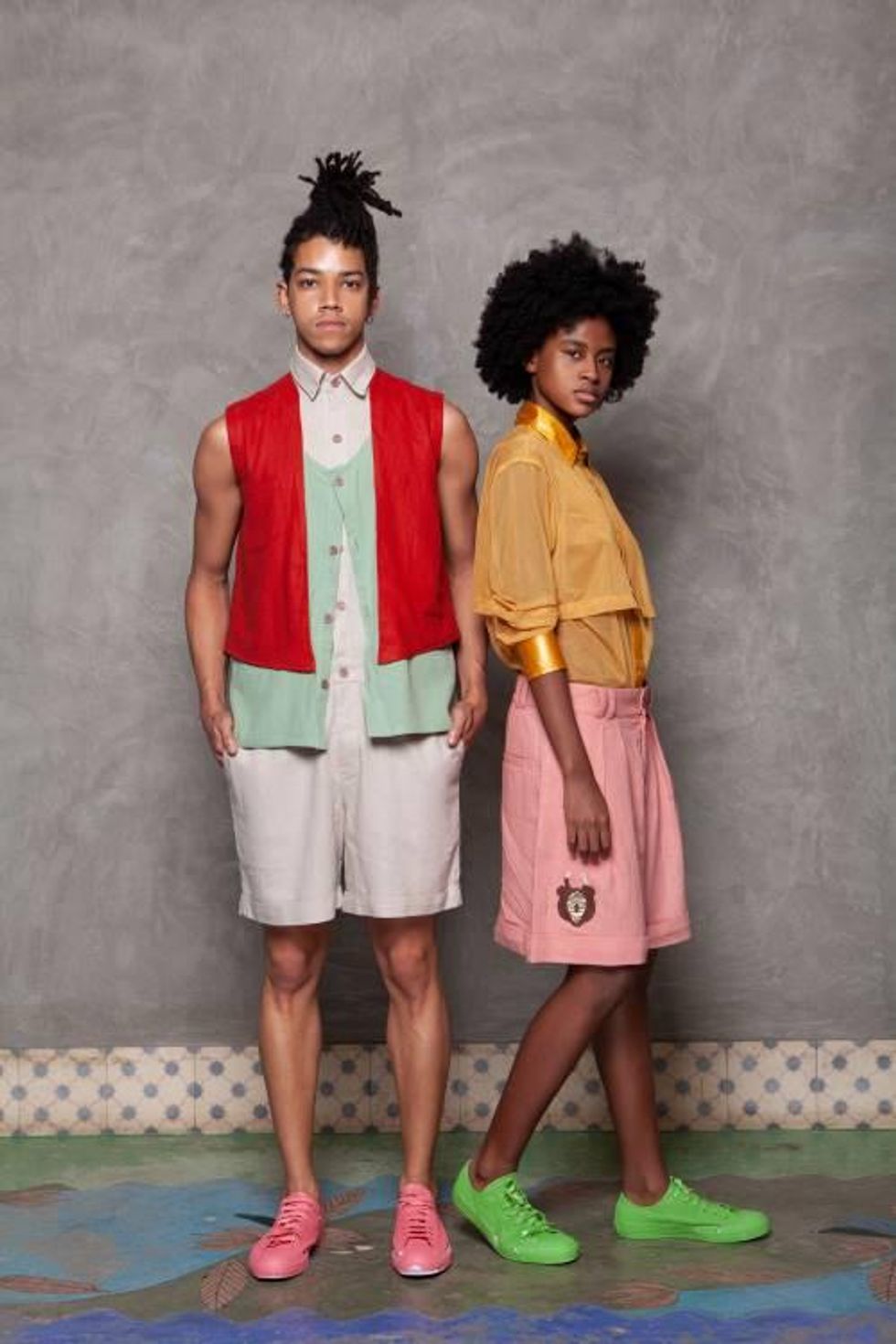
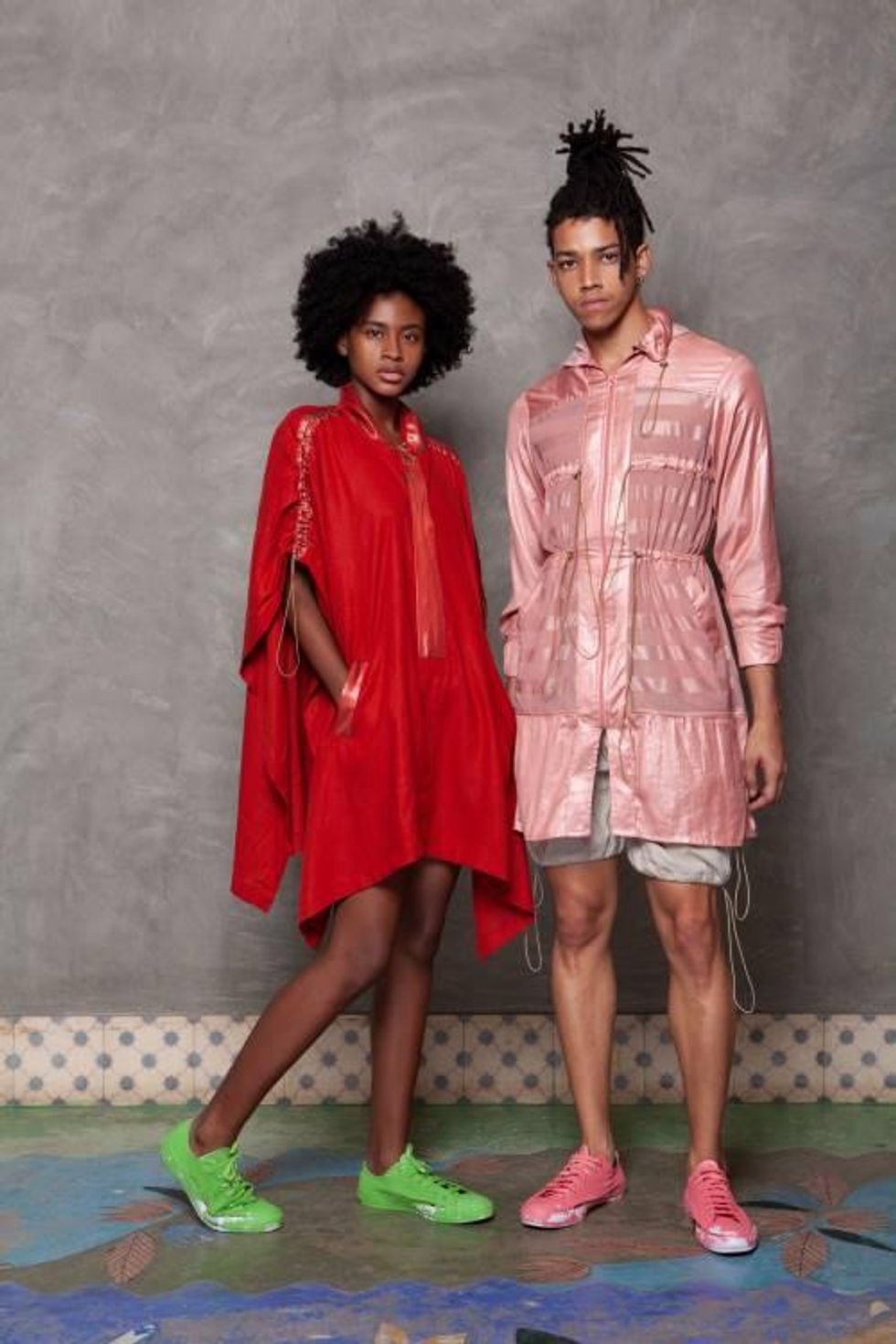
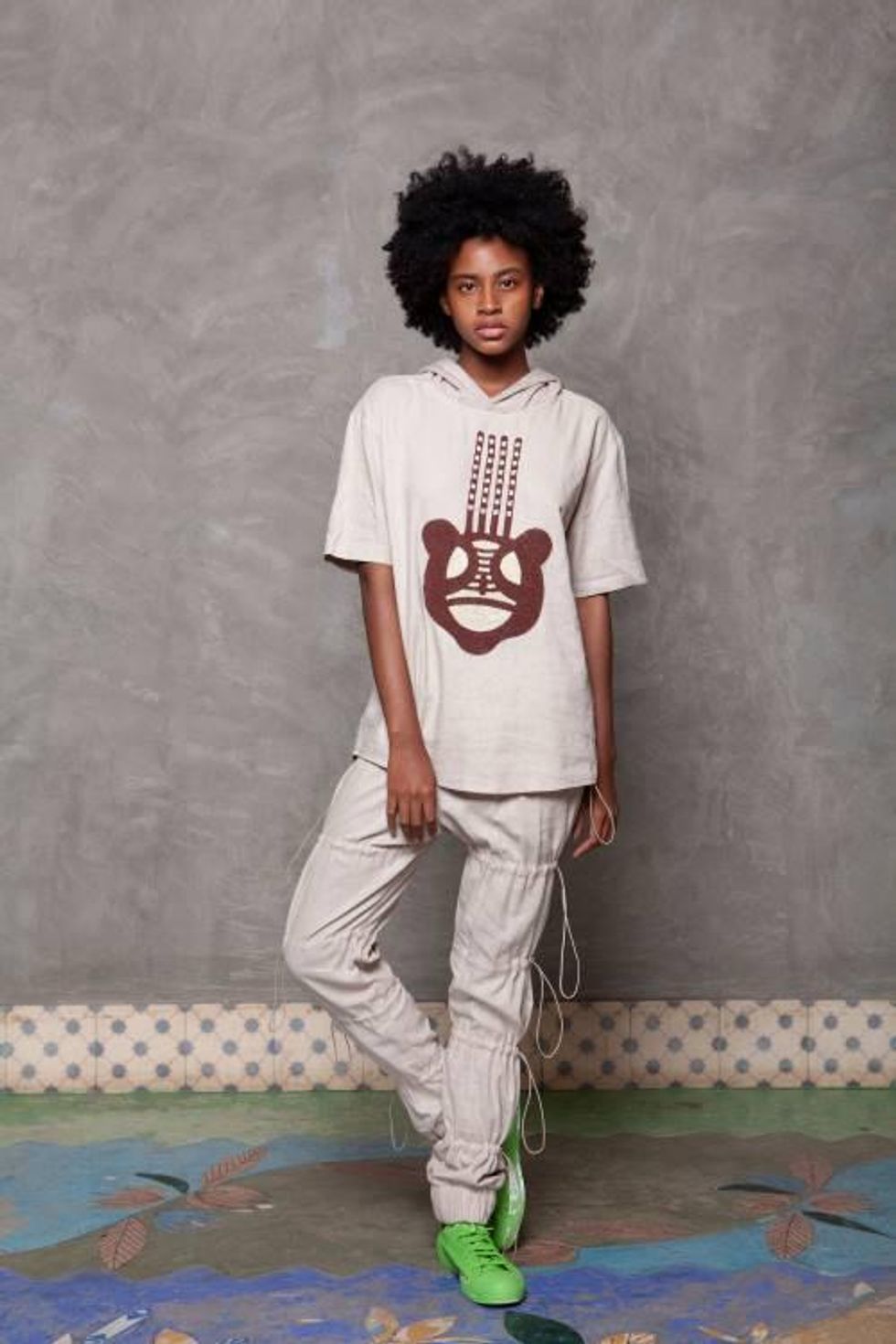
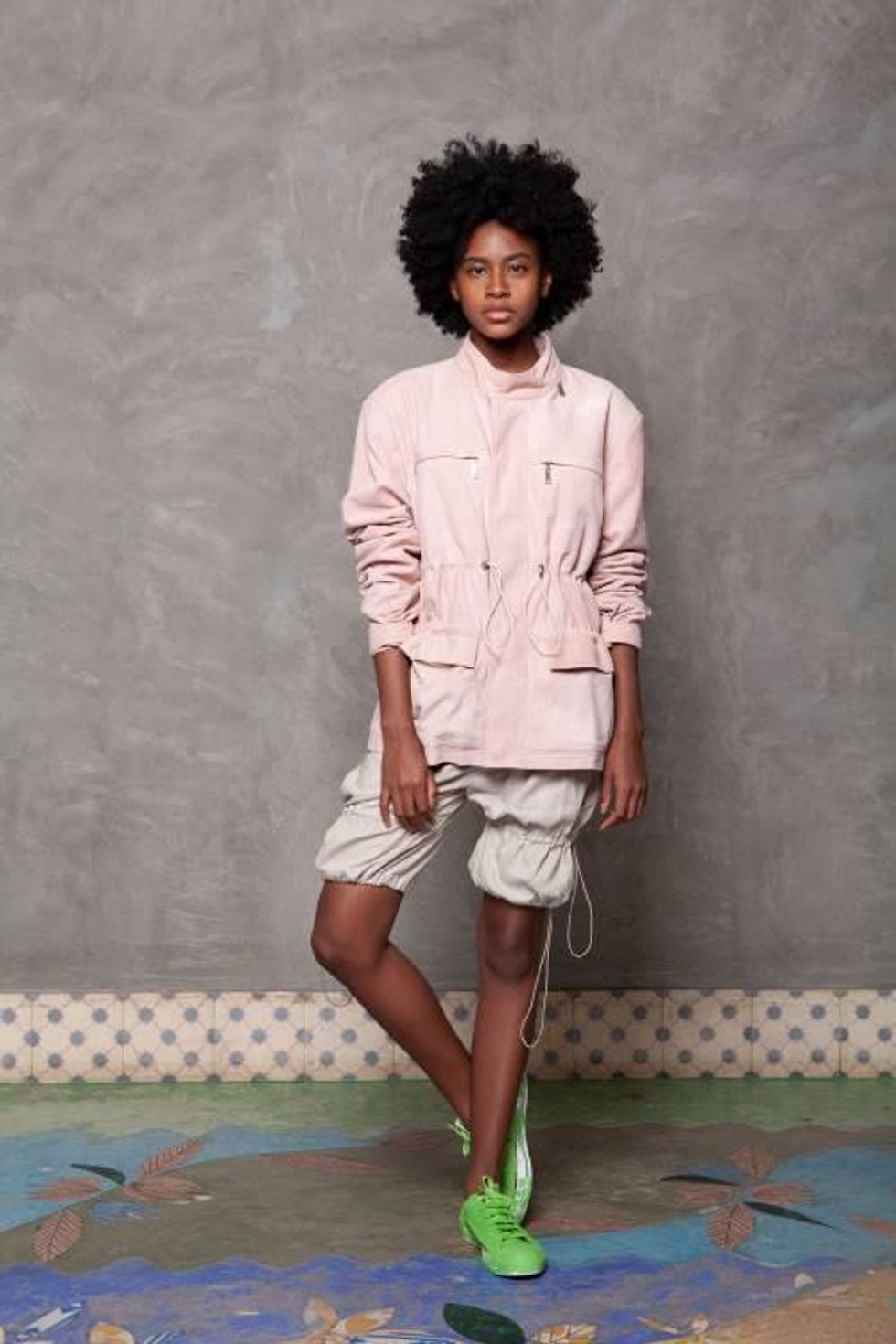






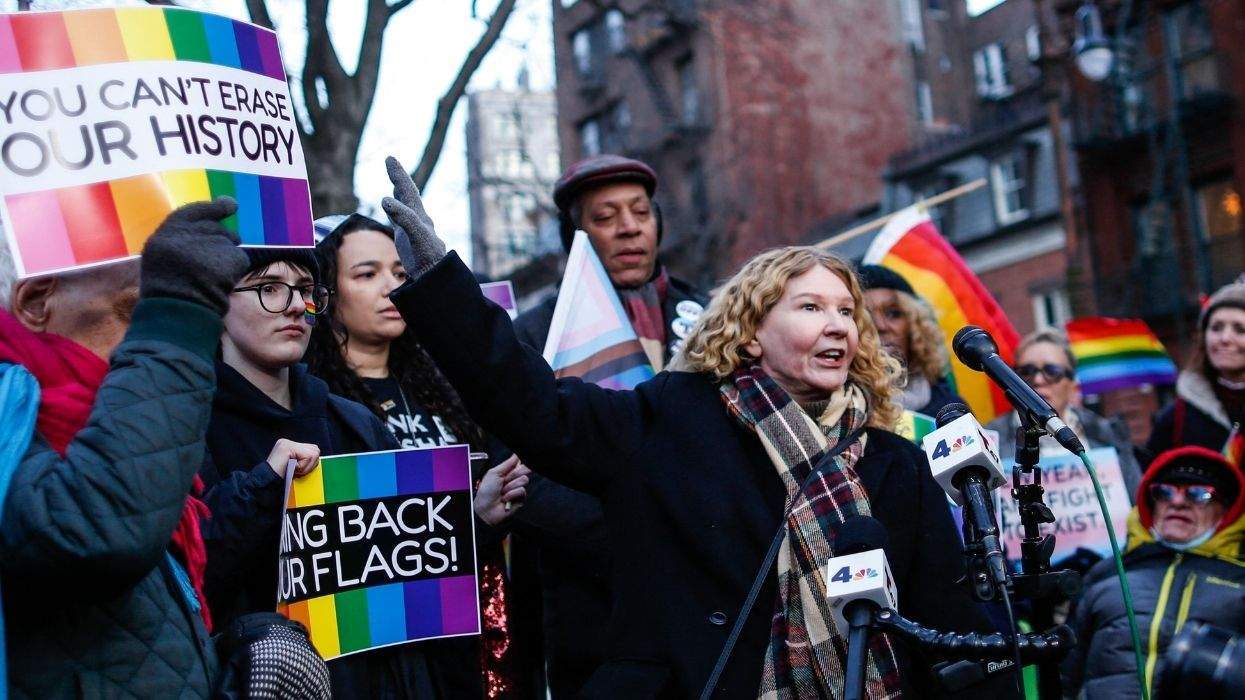
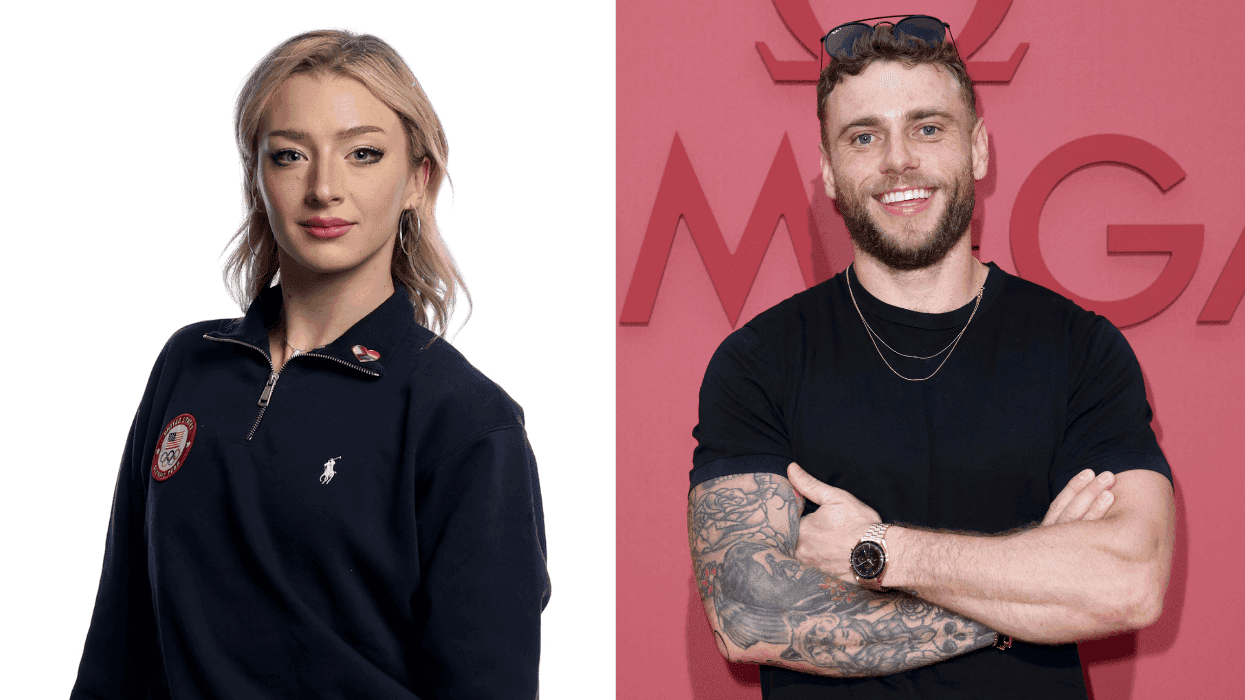






Charlie Kirk DID say stoning gay people was the 'perfect law' — and these other heinous quotes
These are some of his worst comments about LGBTQ+ people made by Charlie Kirk.